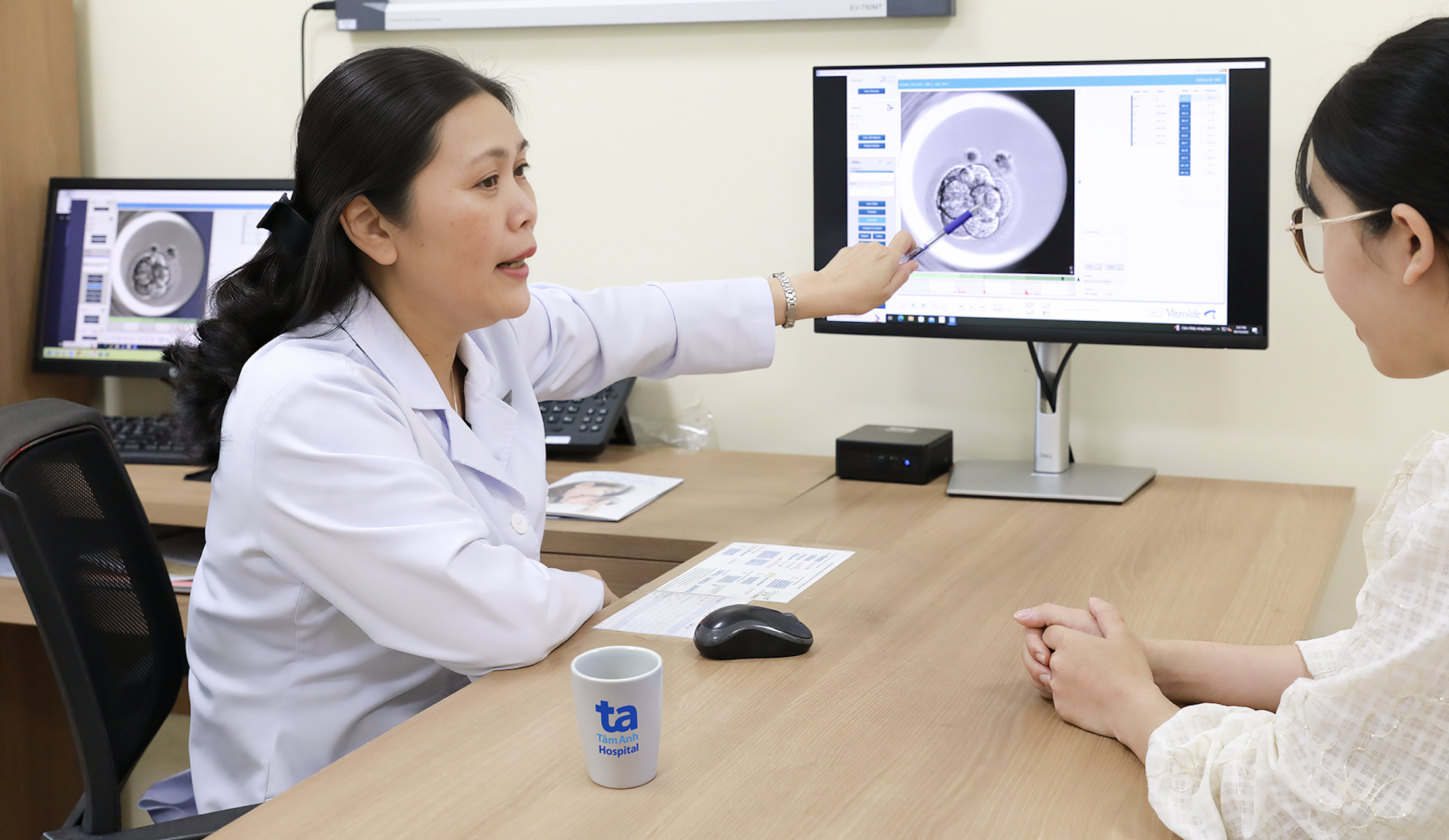Dr. Chau Hoang Phuong Thao, deputy director of the Center for Reproductive Assistance at Tam Anh General Hospital in Ho Chi Minh City (IVF Tam Anh TP HCM), explained that a woman's anatomy includes two ovaries (left and right), each with its own fallopian tube. If one tube is blocked, natural pregnancy is still possible. However, complete blockage of both tubes prevents conception, and surgical intervention to unblock them has a high recurrence rate.
 |
Dr. Chau Hoang Phuong Thao consults with a patient about treatment options. Photo illustration: Thanh Luan |
Mi was recommended IVF to conceive and reduce treatment costs. Her anti-Müllerian hormone (AMH) levels were below average for her reproductive age. Doctors developed an optimized egg stimulation protocol, retrieving 10 mature eggs, fertilizing and culturing 6 day-3 embryos. However, by day 5, most embryos developed abnormally and stopped growing, leaving only one grade-1 embryo.
To ensure successful embryo transfer, doctors thoroughly examined and treated any abnormalities in Mi's uterus. The fluid buildup was addressed, and both fallopian tubes were removed to prevent fluid leakage into the uterus, which could harm the embryo. Once the uterine lining was suitable, the single embryo was successfully transferred, resulting in pregnancy. In late 2024, Mi gave birth to a healthy baby girl weighing 3.3 kg.
 |
Ha Mi's daughter was born healthy thanks to IVF at IVF Tam Anh TP HCM. Photo provided by the patient. |
According to Dr. Thao, blocked fallopian tubes are a common cause of female infertility, accounting for approximately 20% of cases. This can occur independently or alongside other conditions affecting fertility.
Pelvic inflammatory disease is the primary cause of blocked fallopian tubes. For prevention, women should maintain good hygiene, especially during menstruation, before and after intercourse, and avoid intercourse during their menstrual cycle. Abortions should be performed in specialized hospitals, with proper hygiene and follow-up care. Regular gynecological checkups, safe sex practices, and monogamous relationships are also recommended. A balanced and nutritious diet is essential.
Hoai Thuong












